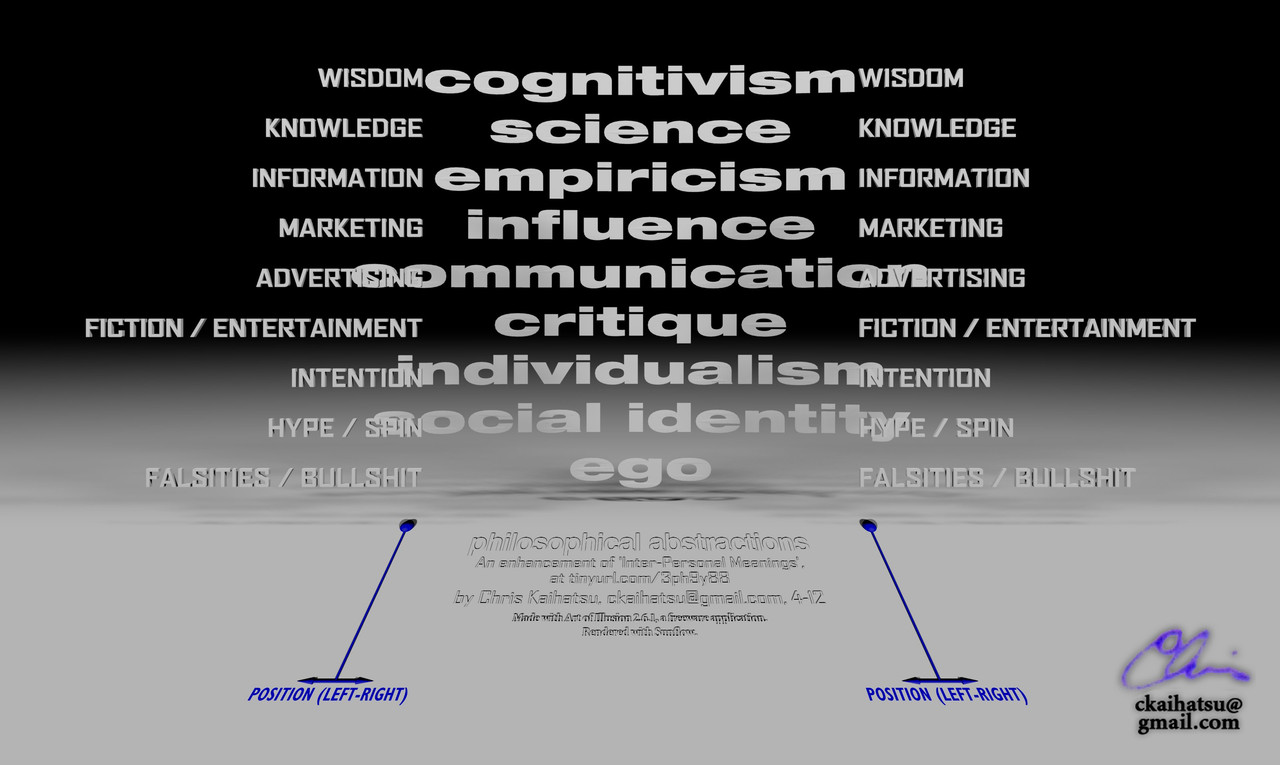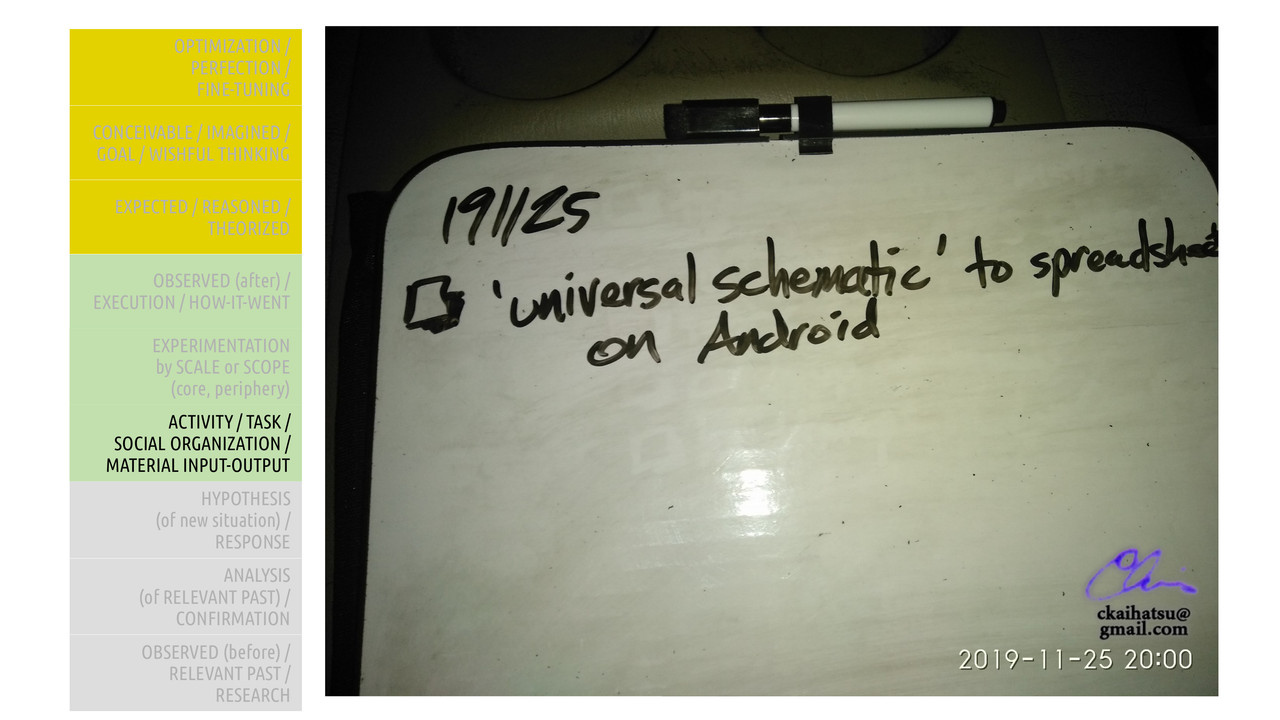QatzelOk wrote:
The "grape monkey" video was not intended as a cautionary tale about grape scarcity. It was an experiment to demonstrate how other animals react instinctively to inequality. With extreme violence.
Most technology leads to greater inequality. And religions - which are the owner's manuals for technological societies - have been formulated to explain and enable inquality. "Thou shalt not kill, thou shalt not steal" are only made "necessary" by conditions that are so unequal that only "killing" might bring back some sense of normalcy.
Imagine using technology for thousands of years in order to facilitate grape-eating monkeys capacity to feel superior to the cucumber-eating majority. What a terrible use of human (or monkey) lives and potential. Living in a death-race with violent "others" so that the few can eat more or better than the majority... ruins life FOR ALL.
Okay, noted. No contention.
QatzelOk wrote:
No. I am saying
1. That the complex and technolgical "means" of achieving "ends" have a way of making other even more complex and taxing means to other ends necessary.
Are you sure, though, that you can lay all the blame at the foot of *technological development itself*, and not at *class society's* implementations of technological development -- ?
As an example, I'll point to the incremental development of the personal computer, from the early '80s, up through the present, which I'm familiar with. Much of the 'complexity' of it has to do with competing standards due to private-sector competition, and the creation of baby-step / incremental *new markets* for every trivial advancement in the underlying technology.
(It's suggested that, with a workers-of-the-world centralized planning, technology could be *mass planned*, to provide *exactly* what uses people want from it, for subsequent production and availability, instead of constantly going through the market for new avenues of *profitability* as the prime motivator for advancing the technology.)(Also: Think mass thin-clients versus overkill-on-everyone's-desktop.)
QatzelOk wrote:
2. And that these new means-to-ends were not previously necessary at all. Life was simpler and success was easier before all the "means to ends" were devised to deal with previous behavioral changes or environmental destructions.
Under capitalist social relations the manufacturers don't even *bother* with any rational-type rationalizations for what they produce, aside from their own *profit* motives, as from *any* market -- capitalism doesn't *require* them to have your social conscience, and so they *don't*.
QatzelOk wrote:
3. And that all of this calculated and self-reinforcing "means to an end" will lead to the THE END because our planet isn't "technology proof."
Well, this is debatable -- I again counsel to *separate* the humanities and social reality, from available *means* to whatever political *ends*. Politics, or social decision-making, at the highest levels, has a logic all of its own, mostly separate from the *technology* to *implement* those ends.
If you want to be less vague and more focused in your critique, you may want to provide some specific *examples*, such as the U.S. military-industrial complex, the technology and social structure of which *lends* itself to the U.S. nationalist and imperialist power *hegemony* over the rest of the world.
QatzelOk wrote:
4. Rather than fighting natural human death with invasive technology, it would be better to embrace natural life if we want to live good lives and not drive our species and many others to extinction.
Sure, I appreciate the humane counter-civilizational focus here, because it's *valid*. My own politics are for directing present-day technologies -- which are *more* than sufficient -- to *humane* ends, instead of constantly building skyward.
QatzelOk wrote:
...
Our actual condition is that our holy "ends" are things like "fighting pollution," "eradicating drug cartels," "keeping the Internet relatively free of spies and other parasites," "trying to ensure that the marginal don't die of starvation."
We no longer have "living a healthy and good life" as an end, because we're too busy fighting against all our previous technological poisionning of the earth and each other.
Okay, mostly agreed, but I think technologies have the potential to be *beneficial* and *constructive*, as well as *deleterious* and *destructive*. Hence politics.













 - By Rich
- By Rich